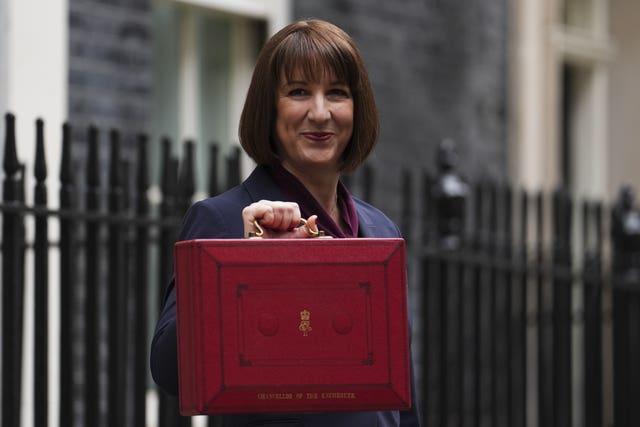Billionaire inventor Sir James Dyson has taken a swipe at the Government for “eviscerating” UK family businesses with the inheritance tax measures announced in last week’s Budget.
The businessman warned that small firms and start-ups will “suffer”, while private equity and public companies escape the taxation.
Chancellor Rachel Reeves used her first Budget to make changes to inheritance tax, including reducing reliefs for agricultural and business property from April 2026 in a bid to raise more funds for the public sector.
For assets over £1 million, inheritance tax will apply with an effective rate of 20% – half the standard 40% rate.
But the measure has faced a backlash from those across the agriculture sector who say the levy will affect farms being passed down from one generation to the next.
Sir James, who, as well as founding technology firm Dyson, owns a commercial farming business, expressed his frustrations with the new Chancellor’s tax changes.
He wrote in The Times: “Make no mistake, the very fabric of our economy is being ripped apart.
“No business can survive Reeves’s 20% tax grab. It will be the death of entrepreneurship.”
He added: “Every business expects to pay tax, but for Labour to kill off homegrown family businesses is a tragedy.
“In particular, I have huge empathy for the small businesses and start-ups that will suffer.”
Meanwhile, companies owned by overseas families, and private equity-owned and publicly-listed firms that are “about maximising short-term profit” will not pay the same taxes, he said.

Sir James is a major landowner and his business, Dyson Farming, produces crops on 36,000 acres across the UK.
The entrepreneur and his family have a fortune of about £20.8 billion, according to the latest Sunday Times Rich List.
Ms Reeves has defended the proposed reforms to inheritance tax by claiming it is not “affordable” to keep the current system.
She has said “only a very small number of agricultural properties will be affected” by the changes, with Budget documents stating the Government wants to restrict the “generosity” of tax relief for the “wealthiest estates”.




Why are you making commenting on The Herald only available to subscribers?
It should have been a safe space for informed debate, somewhere for readers to discuss issues around the biggest stories of the day, but all too often the below the line comments on most websites have become bogged down by off-topic discussions and abuse.
heraldscotland.com is tackling this problem by allowing only subscribers to comment.
We are doing this to improve the experience for our loyal readers and we believe it will reduce the ability of trolls and troublemakers, who occasionally find their way onto our site, to abuse our journalists and readers. We also hope it will help the comments section fulfil its promise as a part of Scotland's conversation with itself.
We are lucky at The Herald. We are read by an informed, educated readership who can add their knowledge and insights to our stories.
That is invaluable.
We are making the subscriber-only change to support our valued readers, who tell us they don't want the site cluttered up with irrelevant comments, untruths and abuse.
In the past, the journalist’s job was to collect and distribute information to the audience. Technology means that readers can shape a discussion. We look forward to hearing from you on heraldscotland.com
Comments & Moderation
Readers’ comments: You are personally liable for the content of any comments you upload to this website, so please act responsibly. We do not pre-moderate or monitor readers’ comments appearing on our websites, but we do post-moderate in response to complaints we receive or otherwise when a potential problem comes to our attention. You can make a complaint by using the ‘report this post’ link . We may then apply our discretion under the user terms to amend or delete comments.
Post moderation is undertaken full-time 9am-6pm on weekdays, and on a part-time basis outwith those hours.
Read the rules hereLast Updated:
Report this comment Cancel